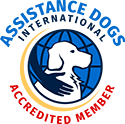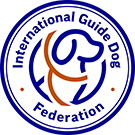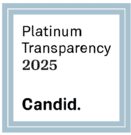Toxic Household Items for Dogs
By: Angie Hill
Do you have an inquisitive pooch living in your home with you? Most dog owners are switched on enough to keep the harmful things out of reach, but pups can be pretty persistent if they want to get a hold of something!
You always need to keep an eye out; just like having a small child or a puppy in the house. With that being said, we’ve dedicated some time to cover off some of the common household items that might well be residing in your house that are toxic to dogs.
You might not be aware that one or some of them are even an issue, but the more information you have, the better dog owner you can be – after all, keeping your most important family member safe is vital, right?
Let’s take a look and see what household items your puppy needs to steer clear of:
Sago Palms
While sago palms are lovely plants for ornamental purposes, they also carry a worryingly high level of toxicity when ingested by your four-legged friend. The risks include vomiting, loss of appetite, liver failure, jaundice, diarrhea, uncontrollable, and in the worst case, loss of life.
It’s safe to say that if you have a pup in the home, you should leave sago palms well out of it.
Chocolate
Do you live in a puppy-owning home that likes to have treats, such as chocolate bars and biscuits every now and then? That’s okay – everything in moderation, and they say – but it must always be kept in mind that doggys and chocolate do not mix.
Again, it is another household item that is toxic to dogs because of the component theobromine, which we can process, but dogs can’t. You will know if your pup has consumed too much chocolate without your knowledge, as the major sign is severe hyperactivity.
It’s worth noting that dark chocolate is more toxic, and just 25g can be enough to poison a dog that weighs 20kg.
Raisins and Grapes
While they are good for you and me to have as part of a healthy diet, furry friends in the home cannot enjoy the pleasure of regularly eating raisins and grapes.
It’s still a little unclear whether the unknown toxin relates to the fruit itself, is made by a mold that grows on the fruit, or something that’s not associated to either. What we do know is that your hound will certainly be unwell should they eat raisins or grapes.
These fruits have been linked to cases of deadly kidney failure in your pup, and therefore, you should be extra vigilant if you keep them in the house.
Anti-Pest Products
Poisons that you can pick up to keep pests and rodents at bay are, by definition, designed to be lethal to these pests, meaning they can also be deadly to your pet.
Essentially, pesticides are found in forms that have been designed to be attractive to pests. The only thing with that is, your doggy is likely to be lured by them as well. Most homeowners would keep these types of products in the shed or garage, so follow suit. At the very least, keep them high and out of reach.
Sugar-Free Gum
One of the ingredients found in sugar-free chewing gum is Xylitol. This is an artificial sweetener. Some experts claim that it is a good replacement for sugar in order to reduce issues such as cavities in human teeth.
However, there are no such benefits with your canine companion. In fact, xylitol can lead to lethal hypoglycaemia and/or liver failure in your pooch. Even dogs who have been treated with dextrose supplements at the vets have been known to suffer liver failure.
It’s definitely recommended that you keep your house free from gum and candy that contains this ingredient to keep them safe and healthy.
Antifreeze
You want to take care of the inside or our car, but the same things that help you do this won’t have the safe effect on your dog. One prime example is antifreeze.
This product can result in deadly kidney failure. This is because the main ingredient is ethylene glycol; it tastes sweet and is super appealing to four-legged friends. While major antifreeze brands have said they will include bittering agents moving forward to help prevent accidents, older products don’t have the same luxury.
As such, pup owners should store antifreeze in a highly secure place and also keep an eye out for leaks in car radiators in case of spills on the floor that pups can gain access to.
Final Note
It’s well worth remembering that you should always be prepared to contact your veterinarian if your pup accidentally comes into contact with any of the items mentioned above. You might not know how much of it they have ingested, so it’s better to be safe than sorry when it comes to your puppy’s health and wellbeing.
Written by guest blogger Angie Hill from Woof Dog







